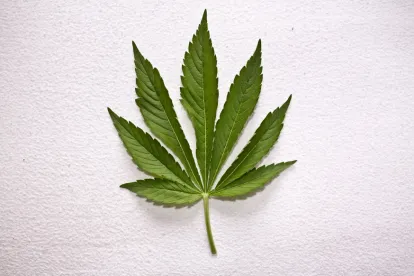Introduction
In September 2019, the U.S. House of Representatives passed the “Secure and Fair Enforcement (SAFE) Banking Act of 2019”,1 the first stand-alone cannabis legislation to be approved by the House of Representatives. Earlier this month, revised versions of the bill were introduced in the House and Senate “to reform federal cannabis laws and reduce the public safety risk in communities across the country.”2
Current Status
Representatives Ed Perlmutter (D-CO-7), Nydia Velázquez (D-NY-7), Steve Stivers (R-OH-15), and Warren Davidson (R-OH-8) introduced the “SAFE Banking Act of 2021”3 on 18 March. To-date, they have recruited an additional 120 co-sponsors, including 16 additional Republicans. In the 116th Congress, the bill had 202 additional co-sponsors, including 25 additional Republicans, and was approved by a vote of 321-103 (including 102 Republicans).
A nearly identical bill4 was introduced in the Senate on 23 March by Senators Jeff Merkley (D-OR) and Steve Daines (R-MT). Senator Daines has replaced former Senator Gardner as the lead Republican co-sponsor. The current Senate bill has 29 additional co-sponsors, including six Republicans in addition to Daines, three of which are first-time co-sponsors: Senators Cynthia Lummis (R-WY), Bill Cassidy (R-LA), and Senator Daines himself. In the last Congress, the Senate version of the bill6 had only five Republican co-sponsors.
The bill is supported by major financial services trade associations, such as the American Financial Services Association and the Independent Community Bankers Association, as well as major cannabis and hemp trade associations, including the U.S. Cannabis Council, the Minority Cannabis Business Association, and the U.S. Hemp Roundtable.
Key Provisions
The core of the legislation is the same as the prior bill passed by the House. For instance, the proceeds of transactions with cannabis-related legitimate businesses (CLBs) and their service providers would no longer be considered proceeds from an unlawful transaction and thus, not money laundering, and would not be subject to forfeiture. Moreover, the bill would prohibit “federal banking regulators” from, among other things:
-
Terminating or limiting deposit or share insurance, or taking any adverse action against a “depository institution,” solely because the institution provides, or has provided, “financial services” to CLBs or service providers of a CLB;
-
Prohibiting, penalizing, or discouraging a depository institution from providing financial services to a CLB or service provider;
-
Recommending, incentivizing, or encouraging a depository institution not to offer financial services to an account holder because of the account holder’s connection to a CLB; or
-
Taking any adverse or corrective supervisory action on a loan made to a CLB or service provider (or their employees, owners, and operators), or to the owner or operator of real estate leased to a CLB or service provider.
Additionally, the bill would protect businesses that perform a financial service for or in association with a depository institution. Such institutions could facilitate payments and act as a money transmitter that uses a depository institution to facilitate a payment for a CLB or service provider. Insurance companies also would be authorized to write insurance for CLBs and their service providers.
Among other things, the Financial Crimes Enforcement Network would be obligated to update its guidance regarding mandatory suspicious activity reports and the Federal Financial Institutions Examination Council would be required to issue guidance and examination procedures for such depository institutions.
Key Modifications
Both the House and Senate bills contain important modifications from the original legislation in the prior Congress, including changes to the protections related to hemp businesses and the definition of “financial services”:
-
Hemp-related Business Protections: The 2019 version directed the federal banking regulators to issue guidance “confirming the legality of hemp, hemp-derived CBD products, and other hemp-derived cannabinoid products, and the legality of engaging in financial services with businesses selling hemp, hemp-derived CBD products, and other hemp-derived cannabinoid products.” It also applied the various protections to “hemp (including hemp-derived cannabidiol and other hemp-derived cannabinoid products) in the same manner as such provisions apply to cannabis. The 2021 version directs the federal banking regulators to update their existing hemp banking guidance (rather than comment on the legality of hemp-derived CBD or other hemp-derived cannabinoid products) to advise depository institutions on their Bank Secrecy Act and other federal obligations. It also applies the various protections to covered financial services providers who provide covered financial services to “hemp-related legitimate businesses” and service providers of such businesses.
-
Financial Services by Depository Institutions: The 2019 version defined financial services to include the services and products listed in Section 1002 of the Dodd-Frank Wall Street Reform and Consumer Protection Act (among other services not directly relevant to depository institutions). The 2021 version defines financial services to include the services and products listed in Section 1002 of the Dodd-Frank Wall Street Reform and Consumer Protection Act as well as (i) any financial services or product that a federal credit union can provide pursuant to the Federal Credit Union Act; and (ii) any financial service or product a national bank or its financial subsidiary can offer pursuant to 12 U.S.C. § 24 (Seventh) and 12 U.S.C. § 24a, respectively )among other services not directly relevant to depository institutions). The definition does not make reference to any services provided by a national bank pursuant to 12 U.S.C. § 92a.
Prospects
The “SAFE Banking Act” has yet to be considered during a hearing by the House Financial Services Committee. However, Congressman Perlmutter is the Chair of the Consumer Protection and Financial Institutions Subcommittee of the Financial Services Committee, so a hearing in the House could occur soon. Despite the tight margin of control, the bipartisan support for this legislation indicates there could be sufficient votes in the House to approve this bill, either on a stand-alone or package-basis.
The dynamics in the Senate are more difficult given the 50-50 split between Democrats and Republicans, and a potential divergence in approach to cannabis reform within the Democratic Party. However, the significant increase in Republican support and various comments from Senator Pat Toomey (R-PA), the Ranking Member of the Senate Banking Committee, evincing his willingness to work on this legislation, indicate an opportunity to find 60 votes in favor. The continued inclusion of protections related to the hemp industry and language from the “Financial Institution Customer Protection Act” provides additional incentives for bipartisan support.
1 H.R. 1595, 116th Cong. (2019).
2 H.R. 1996, 117th Cong. (2021), https://perlmutter.house.gov/news/documentsingle.aspx?DocumentID=5344.
3 Id.
4 S. 910, 117th Cong. (2021).
5 S. 1200, 116th Cong. (2019).







 />i
/>i

